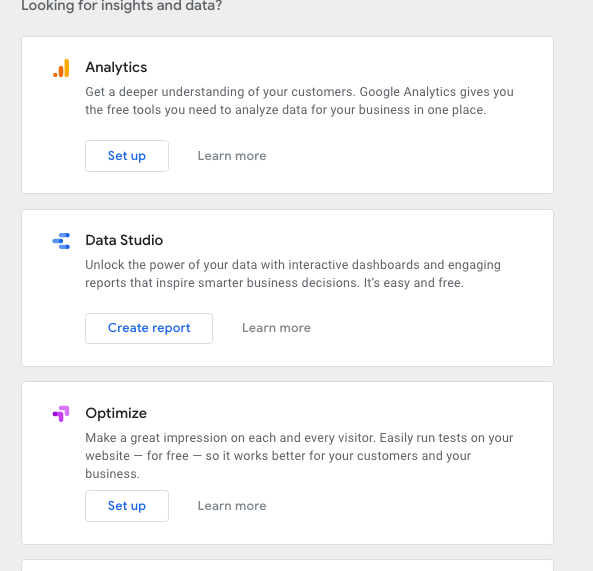

Updated December 18, 2024
Marketing agencies that offer proprietary marketing technology often focus on their tech platforms at the expense of their marketing services. Make sure to research the platforms agencies offer and how they can help your company.
Proprietary technology is great for Shark Tank, but it’s rarely what’s best for marketing services firms and their clients.
In the marketing space, proprietary tech often takes form as unique reporting platforms, bid management technology, or homegrown data management platforms. Mostly, marketers use these platforms to collect and analyze data and execute digital marketing strategies for their clients.
Looking for a Digital Marketing agency?
Compare our list of top Digital Marketing companies near you
While these can be technically impressive, custom designed platforms often end up limiting both the agency and the client.
When we talk to clients, their first priority is always how we will get them the best digital marketing results possible.
We often get questions about what platforms and marketing technologies make up our “tech stack” – the applications, platforms, and tools we use to manage a client’s campaigns.
Questions often gravitate toward whether we use any proprietary solutions unique to our agency.
At BFO, we don’t see any value to a client in proprietary tech. As such, we don’t develop, build, or manage proprietary marketing technology tools. In fact, we see it as a drawback.
This article explores many of these risks and where proprietary technology fits into the equation when choosing a marketing services firm.
Our clients hire us to put them “in the right places and in front of the right faces,” as we like to say.
To do this, we spend our time on data analysis, applying insight, building strategies, and leveraging the best-in-class tools available in the marketplace. We spend zero time developing tools.
Instead, we partner with software innovators who specialize in various marketing platforms. This puts software updates, database modifications, and other software maintenance challenges created by platforms on them.
Using top-of-market tools allows us to specialize in our expertise, being digital marketing professionals focused entirely on our client’s goals.
For example, some search technology platforms cater to the unique needs of e-commerce companies and have features that B2B marketers and lead generation campaigns don’t need.
By using a third-party platform, such as the Google Marketing Platform, we can choose the best platform based on clients' needs.

It also enables us to guarantee data continuity for our clients. If a client should choose to leave, their data resides in a third-party system and belongs to them. There’s no question about getting their data out of our unique system, no questions about who owns the data, compatibility of the data with a new platform, or the costs associated with purchasing the data, not to mention fees for extraction of the data, download, and delivery.
On the flip side, if a client coming onboard with us has their data in a common third-party system, it’s a straightforward transition. This saves the client time and money.
A marketing services company's primary objective for its clients is its ability to strategize and execute its marketing campaigns.
However, when a services firm owns a proprietary technology, supporting its technology often becomes the top priority.
This makes sense. Firms that use proprietary technologies rely on that technology to produce their client deliverables. This means they must keep it updated and bug-free.
Efforts like this demand resources focused on technology rather than on innovating ways to enhance marketing results.
Other challenges a client might face with services firms that use proprietary tech:
These represent a few of the major drawbacks. The reality is with so many scalable tech platforms out there provided by legitimate software development companies, why would anyone want to work with a homegrown piece of technology?
After all, do you really think a 20-person marketing agency can outsmart Google or The Trade Desk?
If your prospective agency offers or requires that its clients use its proprietary technology, treat your evaluation of that agency as if you’re interviewing 2 companies: a marketing agency and a tech firm.
Here are some questions to ask about the technology:
As a client, it’s important to remember that you hire a marketing services firm for marketing. The tech used by your agency of choice should enable your marketing efforts and results rather than define the campaigns you will or can run.
Some talented agencies have built great tools after recognizing a need and no current market solutions. But, those instances are exceptions.
Ultimately, every technology you and your marketing firm use should improve your ability to reach your business goals.


